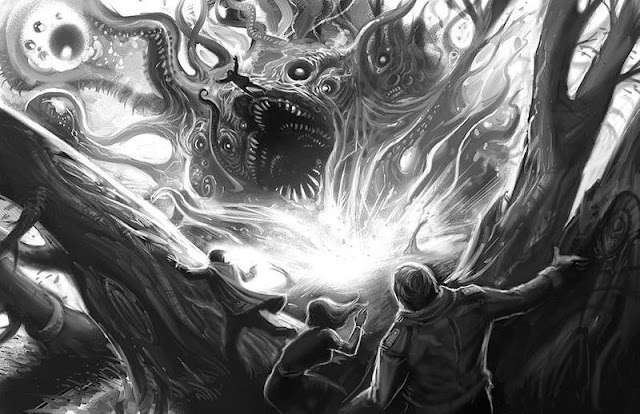Meditations on Husserl's First Ideas
Meditations on Husserl's First Ideas
It's seeming to me Husserl is turning Kant on his head, that the existence of properties of an object, taste, smell, color, texture are the most important to determination of an essence whereas Kant says that the absolute truth of an object exists outside of it's essence determined by individual experience. Furthermore, Husserl says that even in sciences that do not involve actual objects but ideals are on the same level as physical sciences, studies of objects are just as important as the study of an ideal number or measurement for absolute truth just as biologists study the existence of properties of an object, a seismologist might try and find an ideal measurement, which can also be physically traced into it's own essence, which are made of existence of different properties in themselves.
One thing I'm noticing about Husserl is that he dedicates a chapter to natural science, where I take issue with him and where he departs from Kant is his insistence on empiricism as a foundation of knowledge when Kant judged that most absolute truth lie outside the senses, however he critiques empiricists in the sense that theses regarding their knowledge of a given object can be applied to the object's surrounding essence and the theses themselves, that even the 'answers must be questioned'
in furthering my dissertations on Husserl he speaks of an imagined "flute playing centaur". As such things do not exist in real life, its our own personal experiences that shape the essence of the given object that makes us perceive "the flute playing centaur" that all given objects and ideas are perceived through experience of that object, it can be percieved without "acting" on it, that sometimes our conscience can be doubted. that all empirical knowledge can be doubted if one dissects the experiences surrounding the said object.
Another meditation on Husserl. reading more, I've noticed that Husserl and I make the same assumption as I did in one of my books that oftentimes ideas (eidetic thinking) are often as the essence of an object or concept is merely a given, a reflection of someone's prejudiced thinking towards that given object or concept rather than what it actually is, furthermore, each object or concept or equation can be deduced to to bias when some grand problem is solved it often rests upon the biases of those doing the work to examine the object's properties and what they deduce from it. One other example is that numbers or equations are often constructs in themselves, the same way a language is a construct, they each communicate an idea but were built upon the presupposition that these concepts were needed to communicate ideas (eidetic thinking) to one another person, i.e., to give meaning to something. (opinion: I believe this was so society could progress further and basically all concepts can be reduced to shapes, numbers and letters.) however even those must be looked upon critically as, said before that empirical judgments must also be empirically dissected because all things are taken experience of the object in-itself a collection of details that make up an object or idea.
in furthering my dissertations on Husserl he speaks of an imagined "flute playing centaur". As such things do not exist in real life, its our own personal experiences that shape the essence of the given object that makes us perceive "the flute playing centaur" that all given objects and ideas are perceived through experience of that object, it can be percieved without "acting" on it, that sometimes our conscience can be doubted. that all empirical knowledge can be doubted if one dissects the experiences surrounding the said object.
in Husserl's words, natural science is the way that most people should judge things, therefore it must be judged based on the observations of experienced figures and movements of said objects. A positivist will judge things based solely on the empirical given essence of the object whereas the natural scientist will judge based on the experienced movements and figures and signs of said object. the experience of phantasy, still owes geometric insights into said object as even fantastical observations must have lines, connections, points and can be drawn out through the mind.
in the end of Husserl's first dissertation he makes a clear distinction between the empirical, skeptical "philosophy of nature" and the rigid, closed off "natural science" of mathematics, analytics, and other rigid "hard sciences", the being that all of the "philosophy of nature" can be questioned of its essence by the object of study's experiences whereas "natural science" is rigid and cannot be put into question, whereas the philosophy of nature and philosophy in general uses skepticism and empiricism to search for a complete sense of knowledge as these act as hindrances in the search for a natural scientific pursuit of knowledge, thus making natural science superior. just my take.
In his second section of "Ideas" Husserl determines all objects and persons in nature to be "intuitively" sensed, with varying degrees of attention, that all objects within it's past and present can be sensed such as the sound of child he may have heard earlier that recollecting in his mind or the books at present upon his desk. Here we can see the objective "natural" perception of things as experienced by their existential qualities rather than their essential qualities. We all know that babies cry because it's essential knowledge passed to us but we don't know for sure unless we've experienced the existence of a crying baby and we ourselves, can deduce this is real for ourselves.
Husserl states everything appears the same as to one and different to others as they exist for all in a intersubjective web. The environment in which these subjects exist can be deduced to the "other" at the very least, and the subject can escalate this to proper theories of what the "other" constitutes as a thinking subject, with different theories of the "others" existence.
reading more into Husserl, the cogito, the acts of the ego, that any expression can be on hand, such as coming and going, loving and hating, bringing and taking, etc. any act done within the Cartesian axiom can be of one that demands pure focus, whether it be arithmetic, language, or expressional art, that any can be accomplished whether each act demands an expression that is used to accompany any focus towards an object or idea, and that each act can use one or more simultaneous acts to use the object or idea.
Husserl states everything appears the same as to one and different to others as they exist for all in a intersubjective web. The environment in which these subjects exist can be deduced to the "other" at the very least, and the subject can escalate this to proper theories of what the "other" constitutes as a thinking subject, with different theories of the "others" existence.
In Husserl's alteration of the thesis of bracketing, one must suspend something if it becomes the antithesis of its existence, that what is on hand is the conscious object and it is no longer on hand if one cannot perceive it therefore becoming its antithesis, doubting it does not change or transform its main properties, but it can suspend the object's giveness so attempts can be made to doubt it however its properties do not change, its merely "doubted" and not "suspended". to "suspend" its judgement must allow it to become the other, and putting it out of action, therefore becoming its own "void", the unknown.
In the end of the first chapter of Husserl's ideas, Husserl invokes an Empiricist anti Positivist attitude in that all things "on hand"can be "suspended" or "bracketed" in that the proof of their existence cannot be deducted to mere numbers or measurements, that their existence is solely determined on how the person perceives the object as it exists in their world or presence, that they must be perceived metaphysically and not "positive" actuality. That they exist for only the perceiver and not for anyone else, invoking Berkeley.
Prepare for part 2
J./Adolf Stalin



Comments
Post a Comment